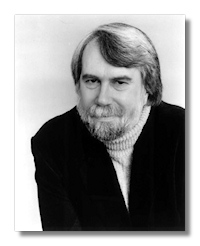
Christopher Rouse: Going to Eleven
By Frank J. Oteri
When most people think of the music of Christopher Rouse, the first thing they probably think of is how loud it is. Some years back there was even a notorious story about an orchestra musician who threatened to sue Rouse for subjecting him to such high decibel levels on stage. Ear-splitting volume is more commonly associated with hard rock than classical music. Rock was a formative influence on this Baltimore native, who as a child was immediately drawn to early rock and roll before his mother turned him on to symphonies, but he quickly grew most fond of raucous 20th-century fare, from Prokofiev and Stravinsky. Once he found his own voice as a composer, the visceral power of rock influenced an over-the-top compositional sensibility which has manifested itself in his two powerful symphonies, numerous concertos, and a massive Requiem which finally received its world premiere last year. His brand new Concerto for Orchestra, which Marin Alsop will premiere at Cabrillo this summer, also promises to pack a wallop.
But not everything Chris writes is completely in-your-face. At the 2007 Chamber Music America conference, the Calder Quartet played haunting strains of music sometimes at the threshold of audibility. In that crowded hotel conference suite you could hear a pin drop. Everyone stood still, including me. I came in late but had to stay until the end to find out what they were playing. When I learned that it was from the Second String Quartet by Chris Rouse, I was mildly stunned. That a composer I had known for years and had come to admire for his raucous percussion pieces such as Odoun Badagris and Bonham and the intense Second Symphony could also write music as subtle and fragile as this completely made me rethink his music. I pored over scores and was startled by how meticulously detailed they were – even the most cataclysmic passages.
Read the complete interview at the New Music Box website:














